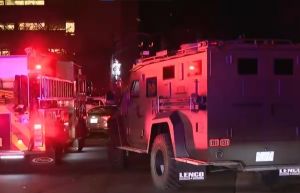Haiti's runoff presidential and legislative elections scheduled for Jan 24 have been preceded by a series of public protests throughout the country early this week. Calling for new elections and the immediate removal of outgoing President Michel Martelly, around 2,000 demonstrators in the nation's capital of Port-au-Prince set vehicles on fire and set up burning roadblocks, the Associated Press reported on Tuesday. In northern Haiti, several electoral offices were also attacked with fire.
The contentious electoral process has been delayed since the first round of votes in October, due to widespread allegations of fraud, Reuters explains. Jude Célestin, the opposition candidate, has refused to campaign since the initial October round of elections, saying that the results were a "ridiculous farce," fraught with fraud and other irregularities, according to the BBC.
The initial round was won by Jovenel Moise, who has the support of Martelly. Martelly is himself constitutionally barred from running for another term. In December, the runoff election was postponed after Martelly called for an independent commission to investigate the electoral process. Among multiple other irregularities, the commission's report, published on Jan. 3, revealed that 43 percent of score sheets in the first round of voting had been altered, and 60 percent of voters had been permitted a proxy vote, notes the Latin America News Dispatch.
The report calls for greater electoral transparency, but its efficacy is questionable, according to the Miami Herald. The United Nations, the United States and the Organization of American States have all called for Haiti's elections to be held in January, explains the Associated Press, in order for a new president to be sworn in before the country's constitutional deadline of Feb. 7.
Amid the widely criticized electoral procedures, Haiti remains the poorest country in the Americas. The nation has relied primarily on foreign aid and international donations since the devastating earthquake in 2010.
© 2025 HNGN, All rights reserved. Do not reproduce without permission.








